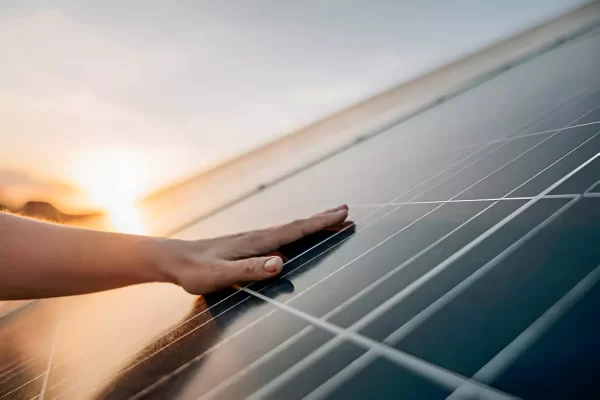BLOG
What Type of Battery is Best for Solar Lights?
Solar lights are an excellent way to illuminate your garden or outdoor space, providing eco-friendly and cost-effective lighting solutions. However, to ensure your solar lights perform optimally, choosing the right type of battery is crucial. This article explores the various types of batteries suitable for solar lights, their benefits, and how to maintain them for long-lasting performance.
Understanding Solar Light Batteries
Solar lights typically use rechargeable batteries that store energy generated from sunlight. These batteries power the lights during the night. The efficiency and longevity of solar lights depend significantly on the type of battery used.
Types of Batteries for Solar Lights
1. Nickel-Metal Hydride (NiMH) Batteries
NiMH batteries are widely used in solar lights due to their capacity and environmental benefits. They have a higher energy density compared to Nickel-Cadmium (NiCd) batteries and are less harmful to the environment.
- Advantages: Higher capacity, environmentally friendly, longer lifespan.
- Disadvantages: More expensive than NiCd batteries, sensitive to overcharging.
2. Nickel-Cadmium (NiCd) Batteries
NiCd batteries were once the standard for solar lights. They are robust and can withstand a wide range of temperatures. However, their capacity is lower than NiMH batteries, and they contain toxic cadmium.
- Advantages: Durable, can withstand harsh conditions, inexpensive.
- Disadvantages: Lower capacity, environmentally harmful, memory effect reduces lifespan.
3. Lithium-Ion Batteries
Lithium-ion batteries are becoming increasingly popular for solar lights due to their high energy density and long lifespan. They are lighter and more efficient than NiMH and NiCd batteries.
- Advantages: High energy density, long lifespan, lightweight.
- Disadvantages: More expensive, sensitive to temperature extremes.
4. Lead-Acid Batteries
Lead-acid batteries are typically used for larger solar installations rather than small garden lights. They are heavy and have a lower energy density compared to other types.
- Advantages: High reliability, cost-effective for large systems.
- Disadvantages: Heavy, lower energy density, shorter lifespan.
Choosing the Best Battery for Solar Lights
When selecting a battery for your solar lights, consider the following factors:
- Capacity: Higher capacity batteries will provide longer lighting times.
- Lifespan: Consider how long the battery will last before needing replacement.
- Environmental Impact: Opt for environmentally friendly options when possible.
- Cost: Balance the upfront cost with the expected lifespan and performance.
Recommended Batteries for Solar Lights
- Best Overall: Lithium-Ion Batteries – High capacity and long lifespan make them ideal for most solar lights.
- Best Value: NiMH Batteries – They offer a good balance between cost, capacity, and environmental impact.
- Budget Option: NiCd Batteries – Affordable and durable, though less environmentally friendly.
Maintaining Your Solar Light Batteries
Proper maintenance of solar light batteries can extend their lifespan and ensure optimal performance. Here are some tips:
- Regular Cleaning: Keep the solar panels clean to ensure maximum sunlight absorption.
- Avoid Overcharging: Use solar lights with built-in charge controllers to prevent overcharging.
- Store Properly: If storing solar lights for an extended period, remove the batteries and store them in a cool, dry place.
- Replace When Needed: Monitor battery performance and replace batteries that no longer hold a charge effectively.
FAQs
Do You Need Special Batteries for Solar Lights?
Yes, solar lights require rechargeable batteries specifically designed to withstand repeated charging cycles. NiMH, NiCd, and lithium-ion batteries are common choices.
Is It Worth Replacing Batteries in Solar Lights?
Yes, replacing batteries in solar lights is often worth it, especially if the lights themselves are in good condition. New batteries can restore performance and extend the life of your solar lights.
What Is the Best Type of Battery to Use with Solar?
The best type of battery depends on your specific needs. Generally, lithium-ion batteries are considered the best due to their high energy density and long lifespan. However, NiMH batteries are also a good choice for their balance of cost and performance.
How Long Do AA Rechargeable Batteries Last in Solar Lights?
AA rechargeable batteries in solar lights typically last 1-2 years, depending on usage and environmental conditions. High-quality batteries may last longer with proper maintenance.
Is There a Difference Between a Solar Rechargeable Battery and a Regular Rechargeable Battery?
Yes, solar rechargeable batteries are designed to handle the daily charge and discharge cycles from solar panels. Regular rechargeable batteries may not perform as well in these conditions and may have a shorter lifespan.
Can I Put a Normal Battery in a Solar Light?
No, using a normal, non-rechargeable battery in a solar light is not recommended. Non-rechargeable batteries cannot handle the charging cycles from solar panels and may leak or cause damage to the light.
Conclusion
Choosing the right type of battery for your solar lights is essential for optimal performance and longevity. Lithium-ion and NiMH batteries are excellent choices, offering high energy density and long lifespans. Regular maintenance, including cleaning solar panels and replacing batteries when necessary, can ensure your solar lights continue to brighten your outdoor spaces efficiently. By understanding the different battery options and their benefits, you can make an informed decision that best suits your needs.


